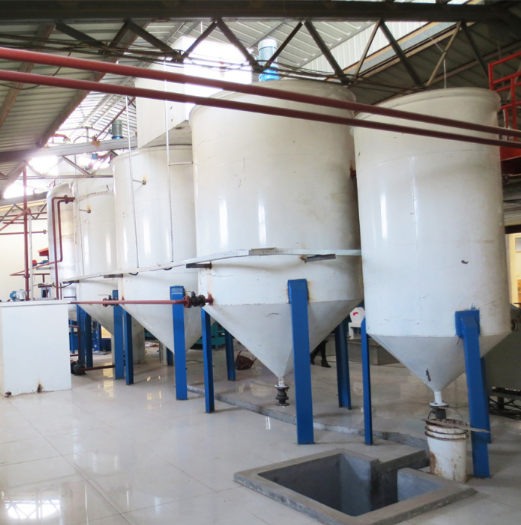Nov . 12, 2024 20:45 Back to list
cottonseed oil refining unit products
Cottonseed Oil Refining Unit Products An Overview
Cottonseed oil, derived from the seeds of cotton plants, is a versatile and widely used vegetable oil. It is not only an essential cooking ingredient but also finds applications in the food industry, cosmetics, and biodiesel production. The refining of cottonseed oil is a crucial process that enhances its quality and marketability. In this article, we will delve into the various products obtained from the refining of cottonseed oil, exploring their significance and applications.
The Refining Process
Refining cottonseed oil involves several steps aimed at removing impurities and enhancing the oil's properties. The primary stages of the refining process include degumming, neutralization, bleaching, and deodorization.
1. Degumming This initial step removes phospholipids and other impurities. Water or acid is added to the crude oil, causing the phospholipids to hydrate and separate. This results in a more stable oil that can undergo further refining.
2. Neutralization In this stage, free fatty acids are removed, which is crucial for improving the oil’s flavor and shelf life. Alkali is added to neutralize the acids, forming soapstock that can be separated from the oil.
3. Bleaching The purpose of bleaching is to remove color pigments and other residual impurities. Activated clay or carbon is used to adsorb these substances, resulting in a lighter-colored and more appealing oil.
4. Deodorization This final step involves the removal of volatile compounds that can contribute to undesirable flavors and odors. Steam distillation is typically employed to achieve a neutral and bland oil that is suitable for cooking and food manufacturing.
Products of Refined Cottonseed Oil
cottonseed oil refining unit products

The refining process yields several products, catering to various industries and consumer demands
1. Edible Cottonseed Oil The most significant product of cottonseed oil refining is the edible oil itself. Deodorized and refined, it is widely used in cooking, frying, and food preparation. Its high smoke point makes it suitable for high-temperature cooking. Additionally, it is a common ingredient in processed foods such as salad dressings, margarine, and snacks.
2. Cottonseed Meal During the refining process, the residual byproducts, particularly the seeds, are often processed into cottonseed meal. This high-protein animal feed is an important product, particularly in livestock nutrition. Cottonseed meal is rich in essential amino acids and serves as an alternative protein source for dairy and meat production.
3. Glycerin A byproduct from the neutralization phase, glycerin is a valuable chemical used in various applications, including cosmetics, food, and pharmaceuticals. It serves as a humectant, solvent, and sweetener in many products.
4. Phospholipids The degumming process yields phospholipids that can be separated and used as emulsifiers in food products. These natural emulsifiers help improve the texture and stability of many processed foods, enhancing their overall quality.
5. Soapstock The soapstock generated during the neutralization phase can be further processed into fatty acids and soaps, providing additional commercial value. Soapstock is often used in industrial applications, including the manufacture of biofuels and household cleaning products.
6. Fatty Acids After further processing, the glycerin and soapstock can be converted into various fatty acids. These fatty acids have a wide range of applications, including the production of detergents, soaps, and lubricants.
Conclusion
Cottonseed oil refining is a multifaceted process that not only enhances the quality of the oil but also generates a plethora of valuable byproducts. From edible oils that enrich the culinary world to high-protein cottonseed meal and versatile glycerin, the products derived from cottonseed oil refining play a crucial role in numerous industries. As consumer demand for healthy and sustainable food products continues to rise, the refining of cottonseed oil stands at the forefront of delivering quality products that meet modern dietary needs. The continued innovation and efficiency in refining processes ensure that cottonseed oil remains a staple in both households and industry.
-
High-Efficiency Physical Oil Refining Unit - Leading Exporters & Trusted Companies
NewsJun.10,2025
-
High-Efficiency Animal Oil Refining Machine - Leading Exporters & Reliable Companies
NewsJun.10,2025
-
Camellia Oil Mill Machine for Efficient Oil Extraction Leading Exporters & Companies
NewsJun.10,2025
-
Premium Pressing Shaft for Oil Press Machines Exporters
NewsJun.10,2025
-
High-Efficiency Centrifugal Filters Durable Industrial Separation
NewsJun.10,2025
-
Top Neem Seed Oil Press - Efficient, High-Yield Extraction Solutions
NewsJun.09,2025
